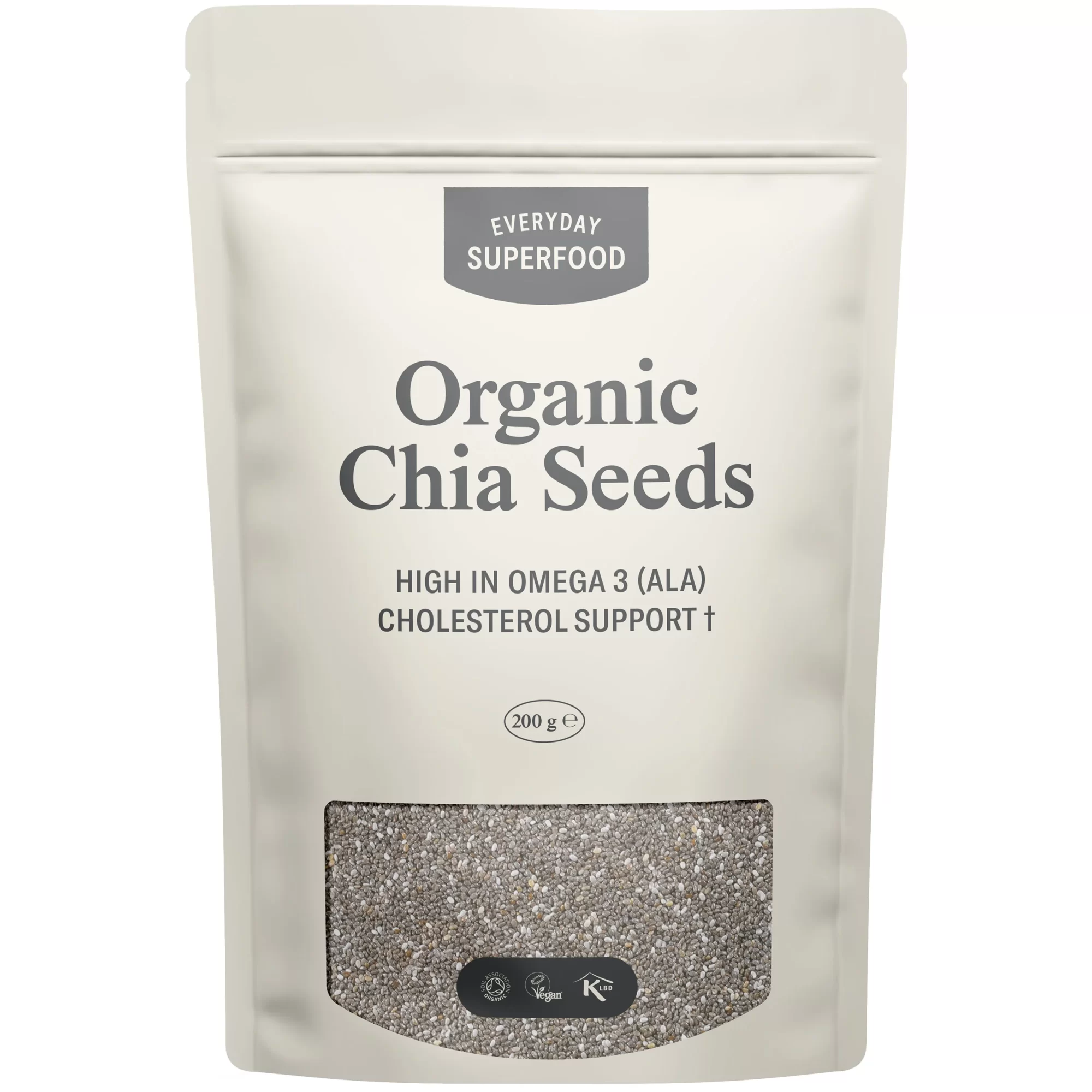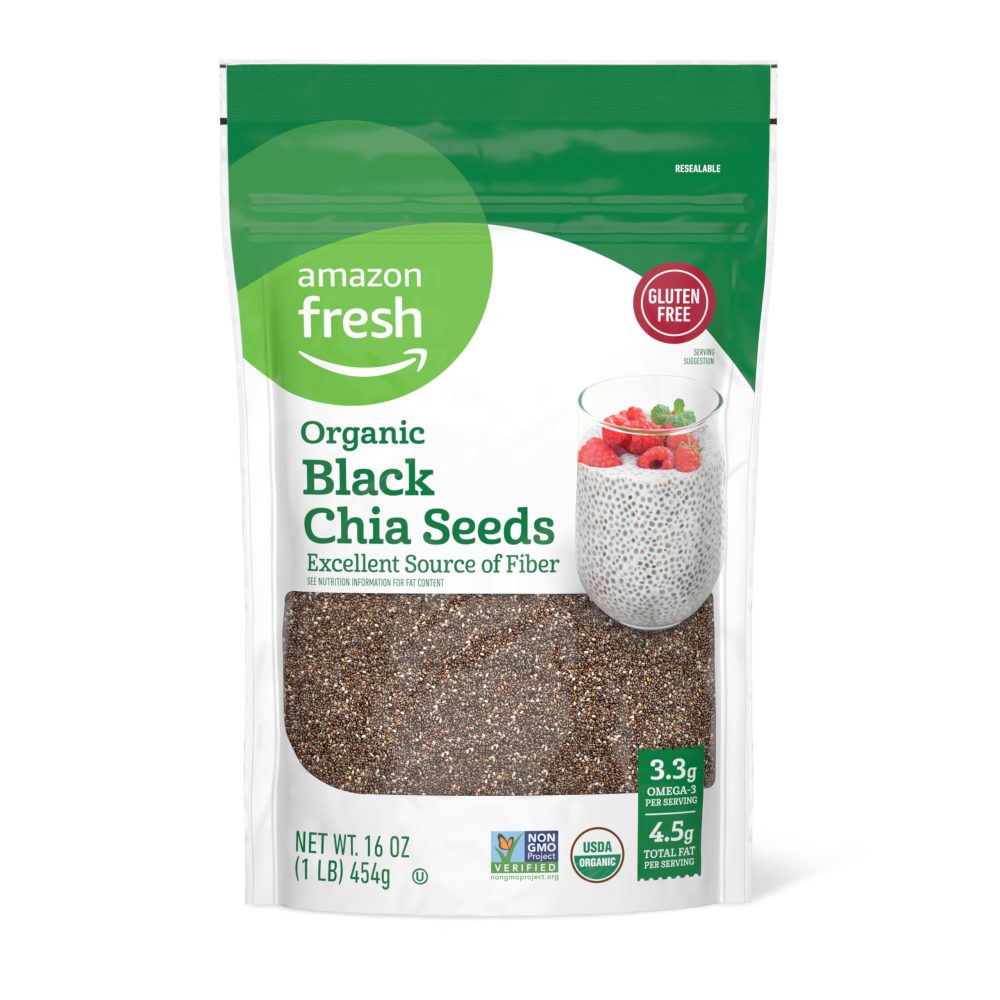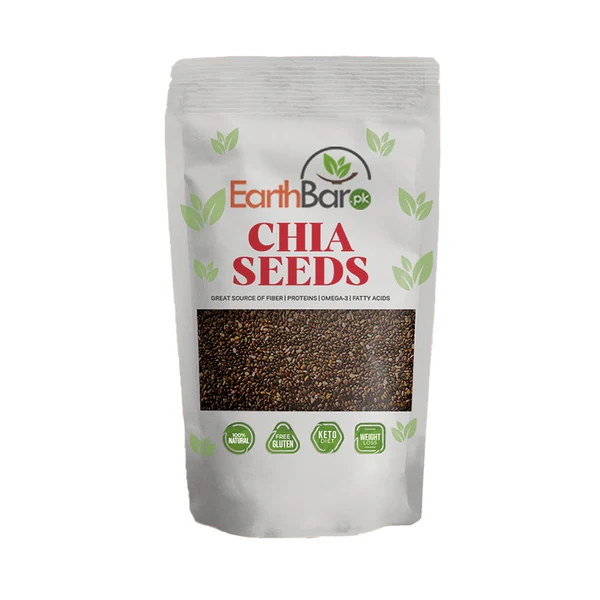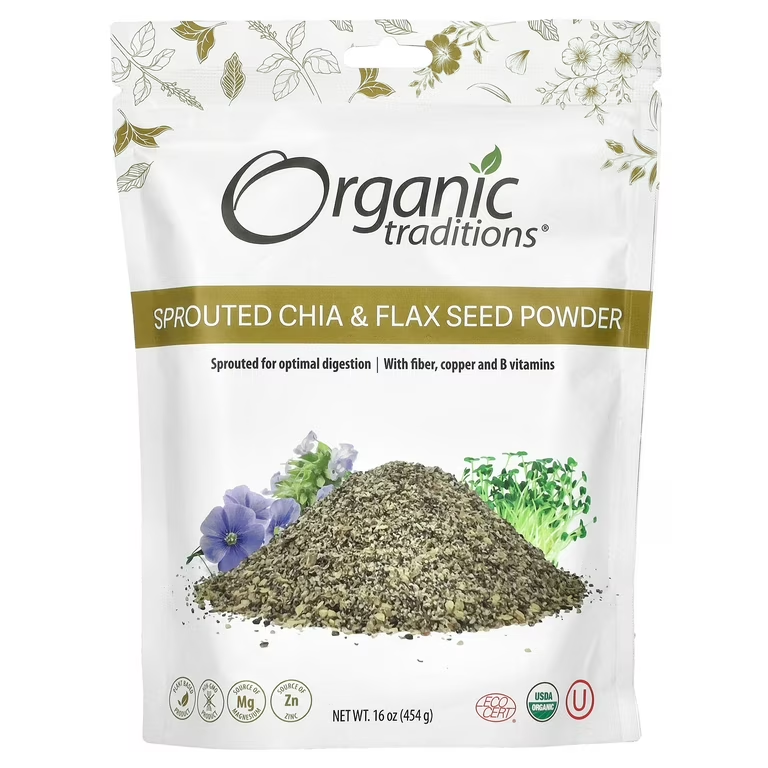Overview of Chia and Flax Seeds
Contents
- 1 Overview of Chia and Flax Seeds
- 2 Weight Loss Benefits of Flax Seeds
- 3 Weight Loss Benefits of Chia Seeds
- 4 How to Effectively Use Seeds for Weight Loss
- 5 Comparing Chia and Flax in Diet Plans
- 6 Scientific Studies and Expert Insights
- 7 Potential Challenges and Solutions
- 8 Conclusion and Practical Takeaways
When it comes to weight loss, both chia and flax seeds have a lot to offer. They’re packed with nutrients that can aid in weight management.
Key Nutritional Differences
Chia seeds are small and oval, rich in alpha-linolenic acid. This boosts heart health by lowering bad cholesterol. Flax seeds are larger and flatter, offering a high amount of soluble fiber. This fiber assists in controlling hunger and prolonging fullness. Both seeds deliver protein, calcium, and fiber, but their shapes and sizes differ. This affects how they work in your body.
Potential Health Benefits
Flax seeds are known for their omega-3s. These fight inflammation, might prevent certain cancers, and can improve gut health. Chia seeds have antioxidants that reduce body inflammation and enhance skin health. They also promote good gut bacteria and digestive regularity. Both chia and flax seeds carry heavy hitters in your health arsenal, making them superfoods in their own rights.

Weight Loss Benefits of Flax Seeds
Flax seeds offer unique benefits for those looking to lose weight. Their high fiber content is particularly important for controlling appetite and managing hunger, making them an excellent addition to a weight loss diet.
Fiber Content and Appetite Control
Flax seeds are loaded with soluble fiber. This type of fiber absorbs water and expands in the stomach. It creates a feeling of fullness that lasts longer, reducing the urges to snack between meals. By including flax seeds in your diet, you can help regulate your food intake, which is essential for weight loss.
Soluble fiber in flax seeds also slows down digestion. This process helps in the gradual release of sugar into the bloodstream. With stable blood sugar levels, you’re less likely to experience energy dips and sudden hunger. Plus, the regular bowel movements promoted by the fiber can aid in detoxifying the body.
Omega-3 Fatty Acids and Metabolism
The omega-3 fatty acids in flax seeds are not just good for your heart. They also play a role in weight management. These healthy fats can increase metabolic rate, the rate at which your body burns calories. A higher metabolism can contribute to more effective weight loss. Additionally, omega-3s help reduce inflammation that can affect metabolism and weight.
When incorporating flax seeds into your dietary routine, you enrich your meals with nutrients that support your weight loss goals. Remember to stay within the recommended daily intake and consult with a healthcare provider if you have any health concern. To get the most benefit, grind flax seeds before consumption, as whole seeds may pass through the digestive system without releasing their nutritious oils and fiber.
Weight Loss Benefits of Chia Seeds
When targeting weight loss, chia seeds are mighty despite their size.
Fiber Consistency and Digestive Health
Chia seeds offer a unique fiber profile beneficial for weight management. The fiber in chia seeds can absorb many times its weight in water. This creates a gel-like substance in your stomach. It can prolong fullness and reduce overall calorie intake. Their high fiber also aids in healthy digestion. Regular bowel movements and a well-functioning gut are vital for shedding pounds.
Antioxidant Properties and Overall Health
These seeds are antioxidant powerhouses. Antioxidants fight damaging free radicals in your body. This helps prevent chronic diseases and supports overall health. A strong and healthy body can be more efficient in losing weight. Chia seeds’ nutrients also offer cardiovascular benefits. They help in lowering the bad cholesterol that is linked with obesity.
Incorporate chia seeds into your weight loss diet with ease. Add them to smoothies, yogurts, or make a chia pudding. Remember moderation is key; stick to recommended daily amounts. Balance their intake with a variety of foods and regular exercise.

How to Effectively Use Seeds for Weight Loss
Utilizing chia seeds and flax seeds can elevate your weight loss efforts. Here’s how to do it effectively.
Daily Intake Recommendations
For weight loss, moderation is crucial for both chia and flax seeds. Aim for two tablespoons of chia or ground flax seeds daily. Start with a smaller amount and gradually increase to avoid digestive upset. Always consult a healthcare provider before making dietary changes, especially if you have health conditions.
Preparing Seeds for Optimal Benefits
To gain full benefits, preparation of seeds is key. Grind flax seeds to access their nutrients. Chia seeds can be consumed whole or soaked. Add ground flax to oatmeal or blend into smoothies. Soak chia seeds in water or milk for puddings or mix into yogurt. These methods enhance nutritional absorption and support your weight loss journey.
Comparing Chia and Flax in Diet Plans
Chia and flax seeds offer different benefits for those looking to optimize their diets for weight loss.
Incorporating Seeds into Meals
Both chia and flax seeds are versatile and can enhance various dishes. Sprinkle them on salads or yogurt to add crunch and nutrients. Blend ground flax into smoothies for a fiber boost, or stir chia seeds into soups to thicken them. Chia seeds swell and form a gel when soaked, making them great for puddings. Flax seeds are best consumed ground for better nutrient absorption.
Potential Side Effects and Considerations
While generally safe, consuming chia and flax seeds can have side effects. Both seeds contain fiber, which can cause bloating or gas if not increased gradually. Drink plenty of water to aid digestion. Raw chia and flax seeds might contain harmful substances, so it’s safer to eat them cooked, roasted, or soaked. Always start with small quantities to see how your body reacts. Consult health professionals before using seeds to manage health conditions.

Scientific Studies and Expert Insights
When exploring the weight loss benefits of chia and flax seeds, scientific studies and expert insights provide crucial information.
Research on Efficacy for Weight Loss
Numerous studies have highlighted how chia and flax seeds aid weight management. Research shows that flax seeds, due to their high soluble fiber content, greatly contribute to feelings of fullness. This can help significantly reduce calorie intake over time, aiding in weight loss. Similarly, the gel-forming property of chia seeds when exposed to water can prolong fullness, which also supports weight management goals.
A study by Mohammadi-Sartang and colleagues, published in a systematic review, affirms that flaxseed supplementation can lead to weight loss and improved body composition. This suggests an effective role for flaxseed in diet plans focused on losing weight.
Professional Recommendations
Health experts often recommend incorporating either chia or flax seeds into a balanced diet for those looking to lose weight.
Dieticians stress the importance of moderation over quantity. They suggest integrating no more than two tablespoons of these seeds daily into meals to leverage their benefits without adverse effects. Additionally, health professionals advise preparing these seeds appropriately to maximize nutrient absorption; grinding flax seeds for instance, aids in the release of their omega-3 fatty acids and fibers.
Professionals also emphasize the need for a holistic approach. This includes maintaining a balanced diet and regular physical activity alongside the consumption of these seeds for optimal weight loss outcomes.
Potential Challenges and Solutions
While chia seeds and flax seeds offer numerous benefits, challenges may arise. One common issue is digestive discomfort. Both seeds are extremely high in fiber. Overconsumption can lead to bloating or gas. To avoid this, start with small amounts. Gradually increase servings to allow the body to adjust.
Another challenge may involve storage. Both seeds can spoil if not stored properly. Keep chia seeds and flax seeds in airtight containers in a cool, dark place. This helps maintain freshness and prevents rancidity.
Individuals may also find it hard to incorporate seeds into their everyday meals. To overcome this, innovative recipes can inspire creativity in the kitchen. Seeking new ways to add seeds can spark interest. Consider searching for recipes or cooking blogs focused on healthy eating strategies.
Finally, some people may struggle with taste preferences. Flax seeds have a nuttier flavor, while chia seeds are more neutral. To address this, blend them into stronger-flavored meals. By doing so, they won’t overpower the dish but will still offer nutritional benefits.

Conclusion and Practical Takeaways
When considering the inclusion of chia or flax seeds in your diet for weight loss, it’s important to recognize how each type may cater to different individual needs and dietary preferences.
Choosing Between Chia and Flax for Individual Needs
Choosing between chia and flax seeds often boils down to personal health goals and dietary preferences. If you’re looking for seeds that can extend fullness due to high fiber content, flax seeds are the ideal choice. However, if antioxidants and skin health are your priority, chia seeds might be the better option. Additionally, texture preferences play a role; flax seeds have a smoother texture when ground, whereas chia seeds have a gel-like consistency when soaked.
Combining Seeds with Overall Healthy Diet and Lifestyle
To truly harness the weight loss benefits of chia or flax seeds, it’s critical to integrate them into a balanced diet rich in fruits, vegetables, and proper hydration. Regular physical activity and maintaining a caloric deficit play crucial roles in the effectiveness of these seeds in a weight loss journey. Using seeds as a supplement rather than the sole focus of your diet ensures a comprehensive approach to weight management. An encompassing health strategy, combining good nutrition, exercise, and mindful eating practices, often yields the best long-term results.
